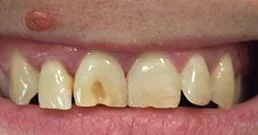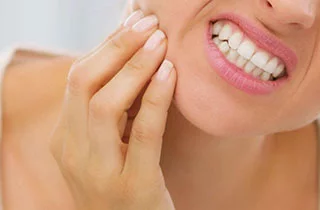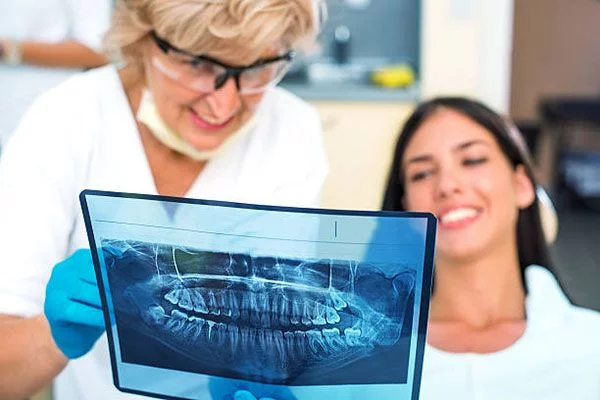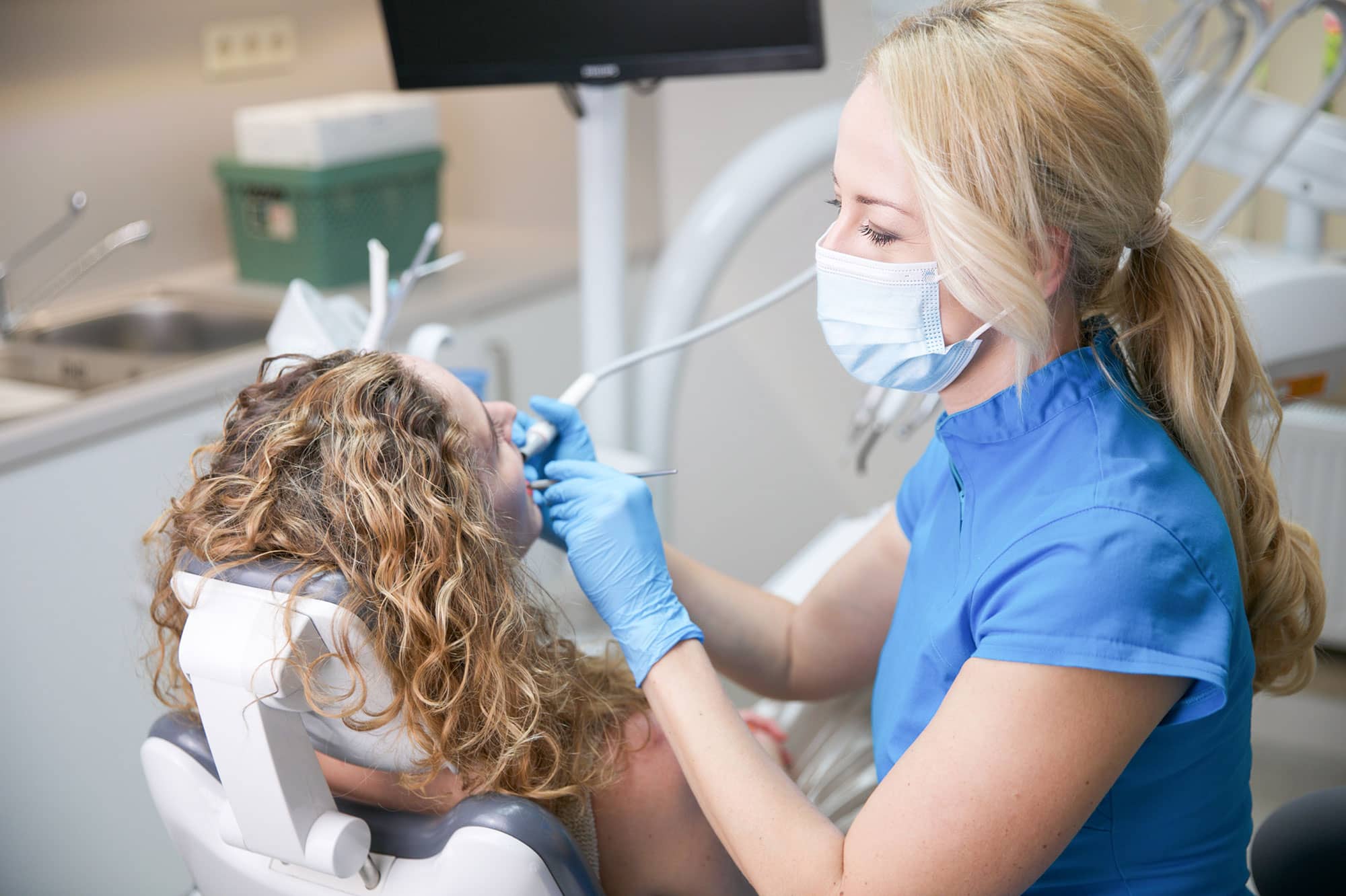Our teeth are exposed to constant use. We use them for a lot more than just eating. We open, bite and even hold with them. Even if we are particularly careful, we can still injure or break our teeth, just like any other bones in our body.

This article will answer the following questions:
- Types of tooth fractures
- What can break our tooth?
- What kind of problems can a broken tooth cause?
- How can a broken tooth be treated?
- At the dentist
- How can we prevent chipping or breaking our teeth?
Types of tooth fractures
There are many differences between tooth fractures. The most important difference is the size of the fracture, but the affected areas also cannot be neglected.
In the case of the latter one, the injury may affect:
- just the enamel or
- in more severe cases, the dentin as well.
Grouping can also happen based on which teeth in the oral cavity are affected:
- permanent or milk tooth
- incisors, molars or canines.
These different cases cause different problems and require altered treatments, from grinding and crowning, through root canal treatment and tooth extraction to serious surgeries in traumatology. However, we will give detailed information about these later.
What can break our tooth?
A broken tooth does not belong to the most common accidents, but it can happen and it may cause massive pain. A tooth can break off for many reasons.
-
- One reason can be the weakening of dentinal walls due to caries. This may happen more frequently in the case of endodontically treated teeth, as they no longer have blood supply. In this case, the tooth becomes brittle and breaks more easily when we bite too strongly
- Another common reason is when the filling is not smooth enough, or is too high, so biting puts extra pressure on the teeth. This pressure may result in the tooth cracking and eventually breaking off.
- There are also cases when an unnatural position of the bite puts too much pressure on particular teeth.
- Daytime clenching or nighttime teeth grinding cannot be „turned off” as we are not aware of it while sleeping. It can result in further fracturing and loss of teeth.
- The fifth common reason is when a part of the tooth breaks off as a result of an accident, because it cannot withstand the pressure or the hit it takes. In case of injured teeth we have to proceed even more thoroughly and carefully. The surroundings of the tooth, the adjacent teeth, and the jaw joints have to be examined as well, but the best practise is to examine the entire set of teeth.
- Vertical fractures occur most often (but not exclusively) with root canal treated teeth. The weakened tooth becomes extremely weak from the inside, strongly carious. Vertical fracture results in the loss of the tooth.
What kind of problems can a broken tooth cause?

A sharp, broken tooth in the mouth can cause trauma, scars on the tongue and even on the mucous membrane. The tongue can get continuously scratched which is painful and cannot heal. This can easily result in scars, inflammations, or lumps.
The broken tooth can not only be a threat in the mouth, but the break on the occlusal surface affects chewing, thus the digestion as well. Depending on where and how large an area is affected by the broken tooth, it can be sensitive and painful.
The missing, broken tooth can cause the teeth to move. The teeth below or above the gap, will start to move in to close the space, to ensure that the bite is once again perfect. Naturally, the broken tooth should be treated. The patient should take the right steps as soon as possible.
In some cases, it can even happen that the gum grows into the tooth. This occurs when the tooth breaks at the level of the gums.
Besides, if it is left untreated, a broken tooth can cause unpleasant breath and a bad taste in the mouth.How can a broken tooth be treated?
Some tips to ease the pain quickly :
- From the outside, place a cold towel or a bag filled with salt on the painful area.
- Painkiller, in case the pain becomes unbearable
- If the tooth is bleeding, place gauze or tissues onto it and press until the bleeding stops (just like on cuts on the skin). Never apply pressure by biting down on it!
- During meals, bite on the area that is not painful, thus lowering the pressure on the broken tooth.
- Never attempt to fix your broken tooth by yourself!
Once you did everything in order to mitigate the pain and nothing has proven useful, you should visit a dentist. In the next section, we will tell you what to expect at the dentist.
At the dentist
First, the dentist will examine the cause and severity of the fracture. After this, he will make a panoramic dental x-ray image and will also examine whether the roots are inflamed.

Following the examinations, the dentist makes a dental treatment plan and consults with the patient. They choose from the available treatment methods together with the patient. Then they begin healing the teeth or replacing missing ones.If the cause of the fracture is a cavity which has reached the tooth nerves, a root canal treatment will be necessary. The treated tooth will be monitored for a period of 3 months after which the onlay will be placed on it.
If the fracture is minor and is caused by a malocclusion, the dentist can fill it out with tooth-colored, aesthetic organic filling material and recommend the patient to consult with an orthodontist specialist. By correcting malpositioned teeth, you can prevent further chips.
The patient should consult the orthodontist specialist also if the fracture happened because the patient has grinded their teeth or put pressure on them. Fractures and cracks caused by grinding teeth or pressures can be eliminated by wearing plastic mouth guards. Malocclusion recovery might be a prolonged process, and in some cases, the patient must wear fixed braces.
How can we prevent chipping or breaking our teeth?
Visit your dentist for a routine check-up every half-year so that they can detect any possible issues. Teeth will not break if the dentist notices in time that they have cavities, or they might not fit properly into the dental arch or the patient might grind their teeth excessively (bruxism).
We should wear rubber mouth guards when pursuing activities during which hits or strong physical impact may affect our teeth. By using such mouth guards, our teeth will always stay far from each other, safely seated in the rubber and still fixed to one another. This protects them from any sudden shifting effects caused by hits.

